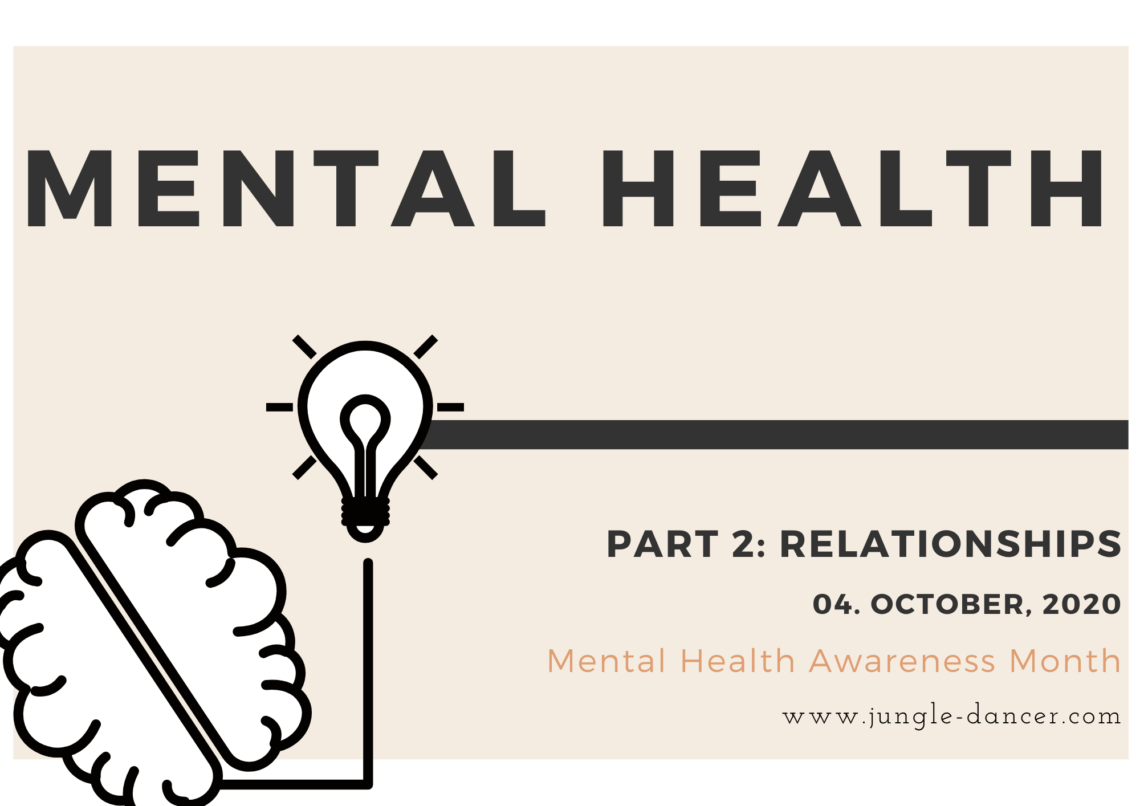
How do our relationships influence our mental health?
When it comes to our mental health and psychological well-being, there is rarely any other social phenomenon that influences us more than the relationships we build and nourish with other people. In the first part of the series dedicated on mental health, I talked about the importance of self-knowledge and thus, how the relationship we build with ourselves influences our mental health.
Now, let’s go step further and focus on our relationships with other people. What makes relationships so special? Why do they have such significant power over us and over our mental health?
The most obvious reason is that they provide us with the social contact, love, and acceptance we all crave. But, there is more to them than merely saving us from feeling lonely. Relationships make us feel like we are part of something greater than ourselves. That we belong somewhere. That – through caring and bonding to other people – we do something purposeful and meaningful.
Moreover, being connected to other people makes us feel safe. We think that through bonding healthily, long-lastingly, and honestly with other people, we will always have a shelter from the storm. Asking for help – be it on a personal or professional level – is so much easier when we have created trustworthy relationships.
The challenges of relationships
However, if there is anything universally true about relationships is that they are complicated. Very complicated! I assume you all know this by now from your own experiences.
Many believe that relationships are complicated because we are all different. And that if a relationship fell apart it is simply because “we did not fit” with our friends or partner. Certainly, there is some truth to it. However, to think that this is the whole story is the same as thinking that the tip of the iceberg is what cut the Titanic in half.
1. We are all difficult to live or be with
What makes relationships especially challenging is accepting the fact that – in on way or another – we are all hell to bear with. The more we get to know someone, the more we see this. And sometimes, it is just too much to handle and conflicts arise. Which is exactly when we put relationships to a test. How we approach and handle these conflicts can either lead to stress, anxiety, and even depression; or, it can lead to feeling strong, emotionally connected, and supported.
2. Conflicts and the damaging, romantic idea of “full acceptance”
We are often unaware of our conflict triggers or responses. If someone have caught them better than us, tries to address the problem and asks us to change our behavior, we might fire back with “if you truly care for me, you will accept me as I am”. Somehow, the romantic idea of full acceptance have made us believe that we cannot form a healthy relationship if we ask from our friends or partner to alter their behavior.
But, this mindset is in many ways a very damaging one. It can lead to frustration or even breaking up of a relationship that could have worked well if we only perceived the suggestions of our close friends and loving partner as offerings to grow and mature. Often, even to even grow in sync with one another. Instead, we refuse to work on our characters and surrender to feelings of isolation, rejection, and loneliness. All incredibly harmful for our psychological well-being.
Of course, there is a difference between asking to alter small, irritating habits (such as, please throw your socks in the laundry basket) over asking to change core characteristics or strong beliefs (such as, stop being religious, or vote for the party I support, but you do not). Furthermore, there is a fine distinction between an honest suggestion and a bitter insult. But, even when the other person is well-intended, truly knows us and embraces our core believes and characteristics, we reject the opportunity to question our actions and by doing so, we sometimes reject the relationship as a whole.
3. Expectations and familiarity
But, why are we so stubborn? Why do we so eagerly reject the opportunity to train our mind, the way we sometimes train our body to get stronger and fitter?
We find the answer in the often overlooked aspects of relationships: we form them based on expectations and familiarity. And these two, make the whole story especially challenging. In one of my all-time favorite books – An Emotional Education – this is amazingly explained in just half a page. Although it refers primarily to romantic love, I think it can extend quite well to friendships as well.
“We don’t fall in love first and foremost with those who care for us best and most devotedly; we fall in love with those who care for us in ways that we expect. Adult love emerges from a template of how we should be loved that was created in childhood and is likely to be connected to a range of problematic compulsions that militate in key ways against our chances of growth.
Far more than happiness, what motivates us in relationships is a search for familiarity – and what is familiar is not restricted to comfort, reassurance and tenderness; it may include feelings of abandonment, humiliation and neglect, which can form part of the list of paradoxical ingredients we need to re-find in adult relationships. We might reject healthy, calm and nurturing candidates simply on the basis that they feel too right, too eerie in their unfamiliar kindness, and nowhere near as satisfying as a bully or an ingrate, who will torture us in just the ways we need in order to feel we are in love.”
Types of relationships
1. The parent-child relationship
If expectations and the search for familiarity play such a significant role in the way we shape our relationships, and if they have their roots in our childhood, then one cannot talk about relationships and mental health without talking about childhood. Even if we did not experience any significant trauma in our childhood, this is still the time when we learned how to behave. Parents are the creators of our habits, idiosyncrasies, and opinions simply because they were our first contact to the world and we enjoyed observing them closely.
How our parents treated us; how they treated one another; and what examples they set for us early on in our childhood, greatly determine how we will continue to bond with other people. The problem is, since no person is perfect, our parents probably parented us at least a little bit inadequately. This often can leave us not only bitter and resentful, but also mad. We often think: how can the people who should have loved me unconditionally damage me [so much]?
However, precisely because of this idea of the parents’ unconditional love for their children, we hold them at higher standards than anyone else in our life. We forget they are human; that, even though they wished only the best for us, they still make mistakes.
The sooner we realize and accept that our parents are flawed in their own way, the easier it will be for us to dig deep to our childhood sources of trouble, seek or accept help, and possibly, see our parents in a kinder manner (unless they have done something utterly unforgivable). Thus, this is the first step towards paving the way to a calmer and more pleasant adult life.
But, above all, the sooner we shift away from the idea that they should have been perfect, the sooner we will become ready for relationships in which we will assign flaws of character of our companions as something perfectly normal. Eventually – and only then – we can deal with the upcoming challenges in any other relationship with a wisdom that we simply could not display as children.
2. Friendships
Friendships are the first relationships we form outside of our family. Often, in friends we find a consolation that is lacking at home. As such, if parents lay the foundation for our future relationships; then, friends teach us how to build the house.
When we have friends, we feel heard, accepted, and cherished for more than just being a daughter or son; sister or brother. From an early age on, we learn how to trust other people and talk about our problems. We learn how to empathize, help, or comfort other people primarily by having friends. Friends give us the strength and courage to also break part of the chains set by our parents and not feel alone when doing so. Thus, they help us develop our emotional intelligence and through sharing and caring, in a way, we care about our mental health too.
However, it is naive to think that friendships are conflict-free or easy to form and maintain. Each side needs to work to make the friendship succeed. Sadly, sometimes the trust we put in other people might not be reciprocated with the loyalty we seek. It is unavoidable that at one or another point in our life, certain friendships will fall apart. There is a distinctive pain correlated to a loss of a friend. Often, it might even feel worse than breaking up a romantic relationship. We feel betrayed, isolated, abandoned. In a way, when a friend leaves us, a part of us and a significant part of our support system depart as well.
3. Romantic relationships
Finally, we come to the most idealized relationship of all: the romantic one. Literature, movies, social media, art, and sometimes even parents and friends, have convinced us that once we find our “soulmate” we will be complete. That all of our problems and worries will disappear. Or, that merely because we are free to choose whom we love and how we love, we will be free from the chains of our past – be it the problematic relationship with our parents, or the painful departures from our friends. Our partners will understand it all and support us unconditionally.
When we are young and particularly naive, we tend to believe that one day we will meet someone who will satisfy all of our needs. That we will never be attracted to anyone else. Communication and understanding will come naturally, and we will spend all of our time together. We sometimes even believe that our partner will be many people at once: best friend, mentor, therapist, house keeper…
Imagine the disappointment, confusion, and sadness that comes the first time when we learn that these are all lies. There is no one person that can fulfill all of our needs. Turns out, our partner, our long-searched soulmate, is flawed. Just as our parents are. But, as The School of Life writes, “the success of a relationship does not hinge on whether the other is deeply flawed – they are. What matters is how we interpret these failings; how we understand the reasons why they have previously been and will in the future be very difficult to be with”.
Mindset change = relationship change = mental health stability
Whether our romantic relationships are a source of either pain and anxiety; or, of relief and security is entirely up to us. We have the option to fight, become avoidant, or controlling; or, to choose to focus on the relationship by offering understanding to our partners. Indeed, we can nurture – not damage – our romantic relationship when our natural response to troubles in the relationship is not judgement and confrontation, but rather empathy and inquiry why our partner is behaving the way they do.
“Annoying characteristics almost always have their roots in childhood, long before our arrival. They are, for the most part, strategies that were developed for coping with stresses that could not correctly be processed by the immature mind. An overcritical, demanding parent might have made them feel as if being disorganized and untidy was a necessary rebellion […] An avoidant personality might have resulted from an early unbearable disappointment”.
An Emotional Education by The School of Life
Keeping in mind why our partner might behave the way s/he does, also means that we accept their vulnerability and fears. The fear of being abandoned or rejected never quite leave us, even if we are in a long-lasting relationship. Somehow, we always fear that our partner will realize we are not what they seek or need; or, that it all just got a bit too much.
When such damaging thoughts appear, remember that most likely your partner thinks the same. So, be kind towards yourself and your lover and admit if you need reassurance of their love. Try to openly express your fears and to honestly ask for whatever you might need.
Simply put, how we react to the challenging traits of our partners; as well as how we face our fears of abandonment and rejection, can cause a revolutionary shift in our mental health. We will probably always be partial prisoners to our childhood experiences; but, building the relationship in which we can maturely talk about this and offer and receive a judgement-free understanding for these patterns, can make us feel extremely strong emotionally and psychologically.
Problems forming relationships?
I like to think of relationships as a two-faced coin: the one side can hurt you, the other side can lift you up in the most challenging of times. Some say that accepting to love someone – be it a friend or partner, while being aware of the possibility that we might loose them one day, is what makes us truly cherish our parents, siblings, colleagues, friends, and partner. What makes us truly involved, caring, and dedicated in the relationship. Others argue that the risk is not worth taking; that if there is even the slightest chance of getting hurt, you should avoid it at all costs.
Which one are you?
Understanding yourself in a relationship
If you find yourself in the second category, you might struggle or fear to bond to other people. It is not necessarily that you do not want to; but, certain life experiences might have left such a strong scar on your character that you simply lack the will to go through such a painful experience once again.
Ironically, often those of us who avoid relationships at all costs, are the ones craving them the most. So, what can you do to give yourself a new chance at finding a new companion for you? Start by seeking the answers to some of these questions:
- Re-evaluate some of your former friendships and romantic relationships. Not only why they fell apart, but also what you liked and disliked in your friends/partners.
- What do you usually think about people when first meeting them? Do you focus on the negative or the positive?
- How do you perceive yourself as a friend and as a partner?
- When someone shows interest to spend time with you, what are your thoughts?
- What do you do and how do you feel when someone shows you kindness, consideration, appreciation; or, when they tell you they need you?
- On the other hand, what do you do and how do you feel when someone is harsh towards you?
- How do you handle conflicts in a relationship?
- How open are you to feedback or (constructive) criticism from your family, friends, colleagues, boss, or partner?
I do not say that answering these questions will help you form new relationships right away. However, they might give you an insight into why some of your former relationships fell apart and what you need to do now in order to form new ones. Remember, a shared joy is doubled joy, a shared worry is halved worry.
Mental Health Awareness Month
This post is the second one in my series on mental health. October is a mental health awareness month, so I am inviting you all to think about this topic and your overall psychological and emotional well-being. This should no longer be a taboo topic.
If you like what you read, or think that the ideas I share could be of relevance to someone you know; to someone who struggles – please reach out to them. Be kind, be supportive, be caring. Thank you.
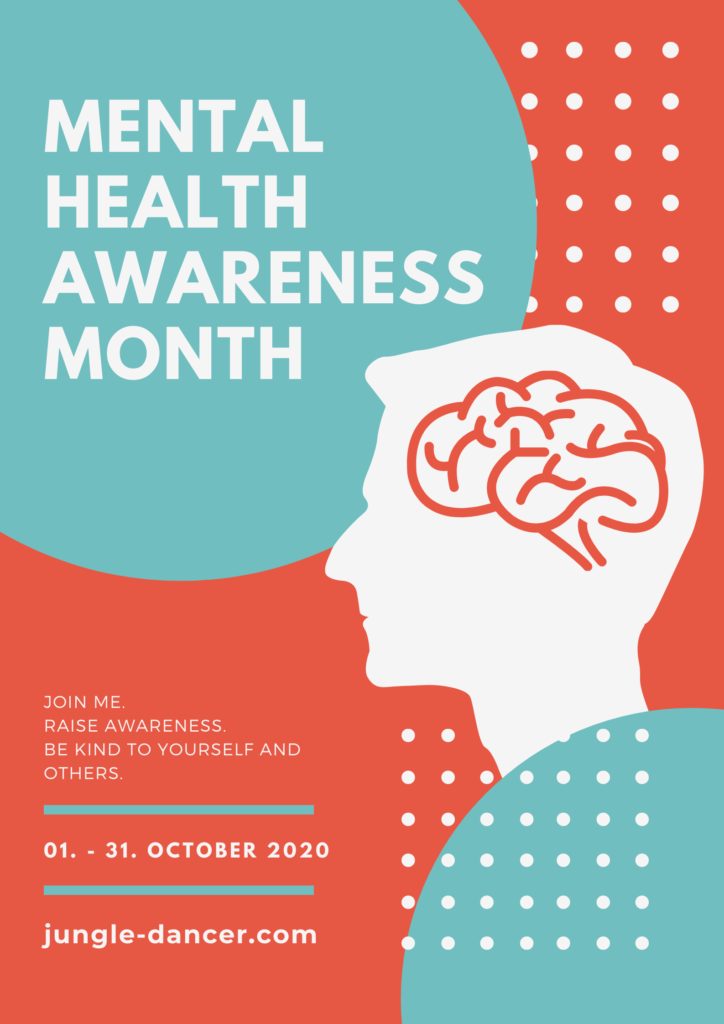


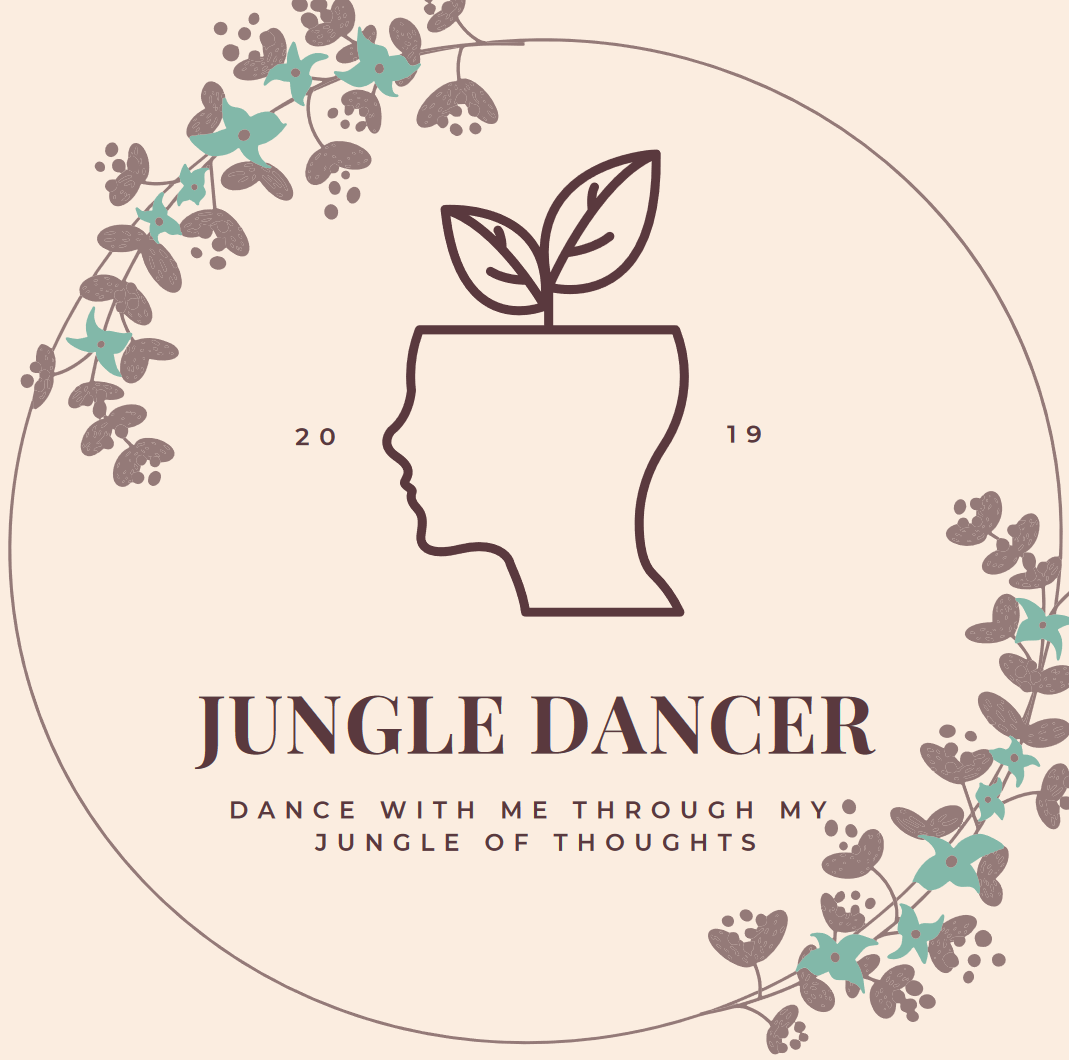
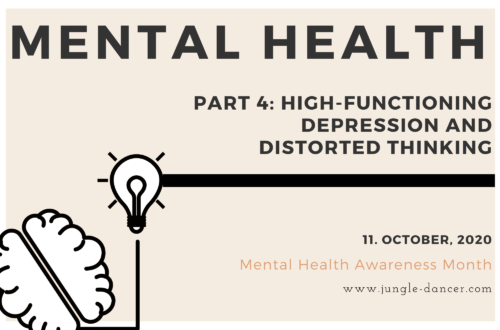
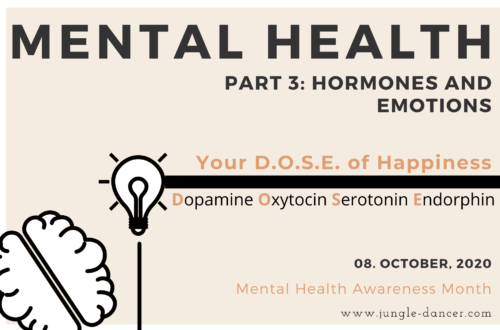
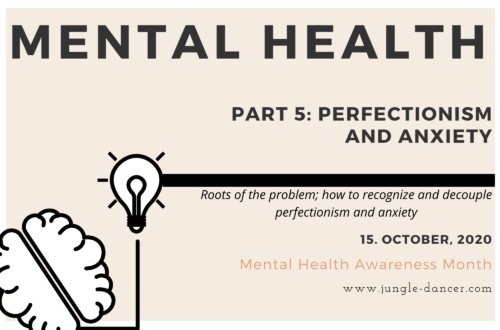
3 Comments
Zainab Khursheed
hey,, i just wanna thank you for writing this article since it gave me such a positive energy and strength to fight my fears and apprehensions. keep it up..
Ivona Kafedjiska
Thank you so much Zainab! I am so glad to read it had such a positive effect on you, this is the reason why I am working on this series in the first place.
Pingback: